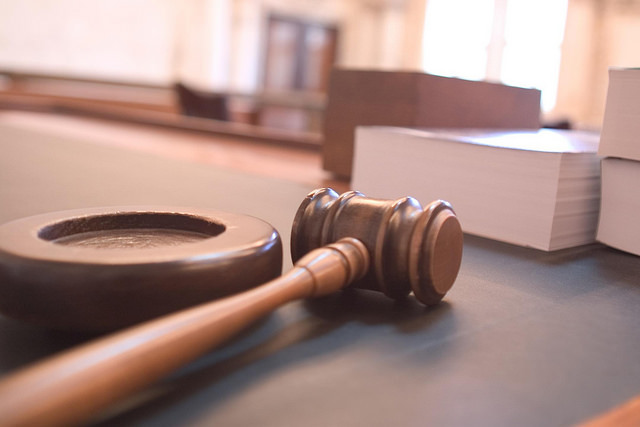A Radical New Approach To Criminal Justice Will Soon Begin In One Chicago Court
By Stephen Gossett in News on Jul 20, 2017 9:00PM

Flickr
A radically different approach from the normal criminal-justice process is about to begin in one North Lawndale court.
The Restorative Justice Community Court—which was announced last year and is now set to launch late this summer—does away with the conventional courtroom structure in favor of a community-based model. The model pairs young, nonviolent defendants alongside victims, family and various members of the community, and puts them face-to-face with each other at the same table with a judge.
The point of the group is to forge an agreement between parties that centers around the defendant completing community service and providing letters of apology rather than serving hard time. There's a focus on reintegration, with mental health and substance abuse services, job and education programs, and parenting classes among options for administration. Judge Colleen Sheehan, who presides over the restorative justice court, makes a final ruling, which takes into account the voiced needs of the community and various treatment options. Defendants who then complete the assigned reparations can avoid having the offense land on their criminal record.
"As a court system, we must work to end the cycle of recidivism," said Chief Judge Evans in a release. "Our new Community Court empowers victims and residents to work as our partners to help restore nonviolent individuals back to society, provide restitution to victims, and improve our overall quality of life."
The program is only available to young defendants—between the ages of 18 and 26—who are charged with nonviolent felonies or misdemeanors. They must have no history of violent offenses, "accept responsibility for the harm caused" and be residents of North Lawndale.
The Cook County Court announced on Thursday that the RJCC will begin on Aug. 31, with hearing once a week, at the headquarters of non-profit social-service agency UCAN, in North Lawndale. Some 100 defendants are expected to go through the community court in its first year, according to the Office of Chief Judge Evans.
The court is funded with $200,000 from a Department of Justice grant that was issued last year, to create or help support existing "community courts"—which emphasize community-service restitution for nonviolent offenses—in 10 different cities. But Chicago is unique among those grant recipients in adding the "restorative" component that involves victims and the larger community to take part, according to the Atlantic.
"We oftentimes look at a situation or a crime and we’re often looking at the very surface of it," Judge Sheehan said of the restorative court program last year, in the Christian Science Monitor. We make all sorts of judgments about who the people are involved and what that type of person is. And this is really a way to explore who these people are who are involved in the crime and victims who are involved in the crime.”